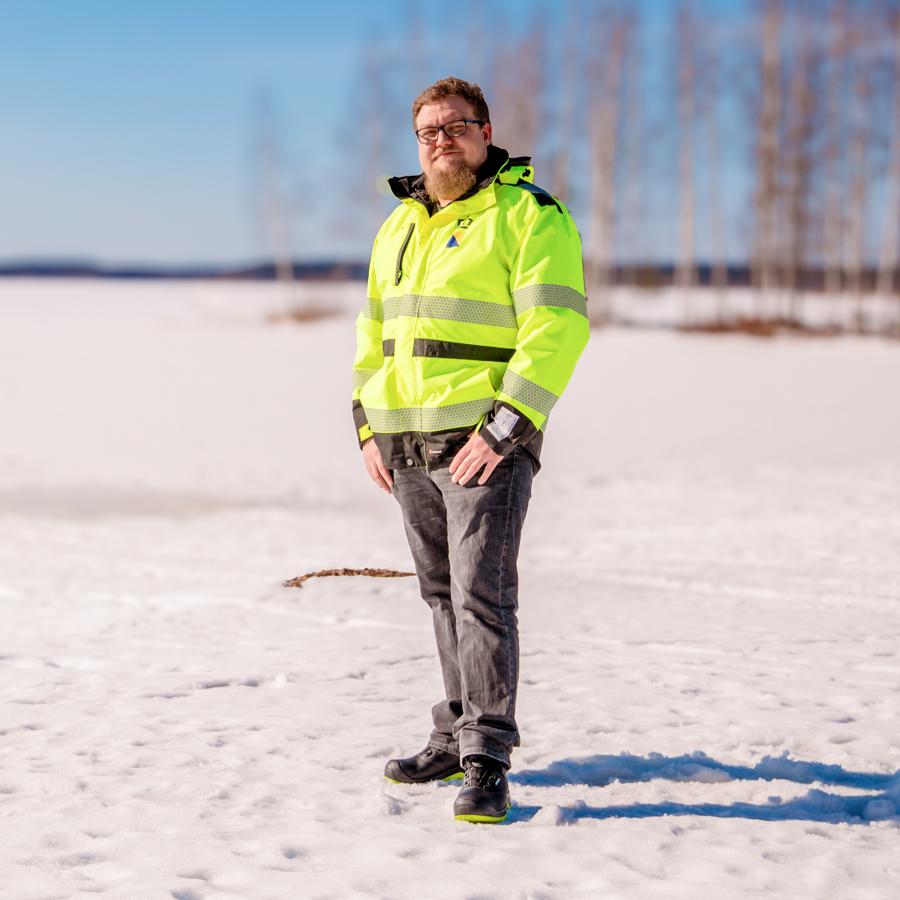Henri Hulkkonen gained his first experience of Terramare even before joining the army. “I got to be an assistant blaster on a drilling barge in the autumn of 2005, thanks to my father,” Hulkkonen recalls his start nearly 20 years ago. Underwater blasting was carried out in Vaxholm, Sweden.
Soon, Hulkkonen was a full-time blaster in the company. “I took blaster courses and started working. I’ve been a regular worker since the spring of 2006.”
From blaster work, Hulkkonen moved onto a site supervisor role in Hamina in 2010. “I have worked as a site supervisor on both a barge and a dredger,” he confirms.
He still holds those roles, but, apparently, not for much longer:
“I am now in my second year studying in Lappeenranta to become a construction foreman,” Hulkkonen shares.
Aiming for office jobs
The part-time degree, completed alongside work, will be ready by the spring of 2026, at the latest.
“I need the degree because I’m interested in the role of responsible site supervisor in project construction offices.”
Hulkkonen says that Terramare has supported his return to studying:
“It felt good to see that the organization supports studies.
In everything else too, you notice that there is the opportunity in the company to advance to just about anything – and they encourage that.
The sea doesn’t leave the man
Hulkkonen admits that “shore work” has started to interest him after years spent at sea – but the water element hasn’t completely left his heart. “I don’t plan to abandon the sea – that feeling of freedom when you’re on a boat with your own crew is always magnificent.”
Hulkkonen may not have sailed all of the world’s seven seas, but his list of international trips is impressive: Sweden, Estonia, Latvia, Denmark, France, Italy, Scotland…
“The furthest trip was to India during the winter seasons of 2018 and 2019. There we dredged a terminal port and worked on a naval base for the Indian Navy,” Hulkkonen recounts.
The life of a travelling worker is interesting and keeps the work fresh. “When the sites change, you know that you will not always be doing the same work.”
Another big thing is recovery: 2 or 3 weeks of intense work are followed by equally long breaks. “At least for me, this work rhythm has suited well.”
Working with a good pace and mood
Hulkkonen sees many strengths in Terramare’s corporate culture, starting with the positive atmosphere. “No matter the work, it’s always been great to go to work,” he says.
Key to the enjoyment have been fair bosses and nice colleagues. Numerous great sea trips with an excellent crew have been especially memorable.
“For a couple of weeks at sea, the ship’s crew is like family.”
Hulkkonen considers maritime banter to be an important factor for coping and atmosphere, but that doesn’t mean you have to crack jokes day after day.
“If you’re having a bit of a bad day, you can say it right in the morning, and the others will respect that,” he describes.
A maritime builder is a different kind of builder
Terramare is also known for employing specialized men and women. Hulkkonen has noticed during his studies that maritime construction was new and wonderful for many of his classmates – and questions about the industry come up regularly.
“Terramare is a pioneer in the kind of construction that is quite a specialized job,” Hulkkonen summarizes. “The work is hard but rewarding.”


